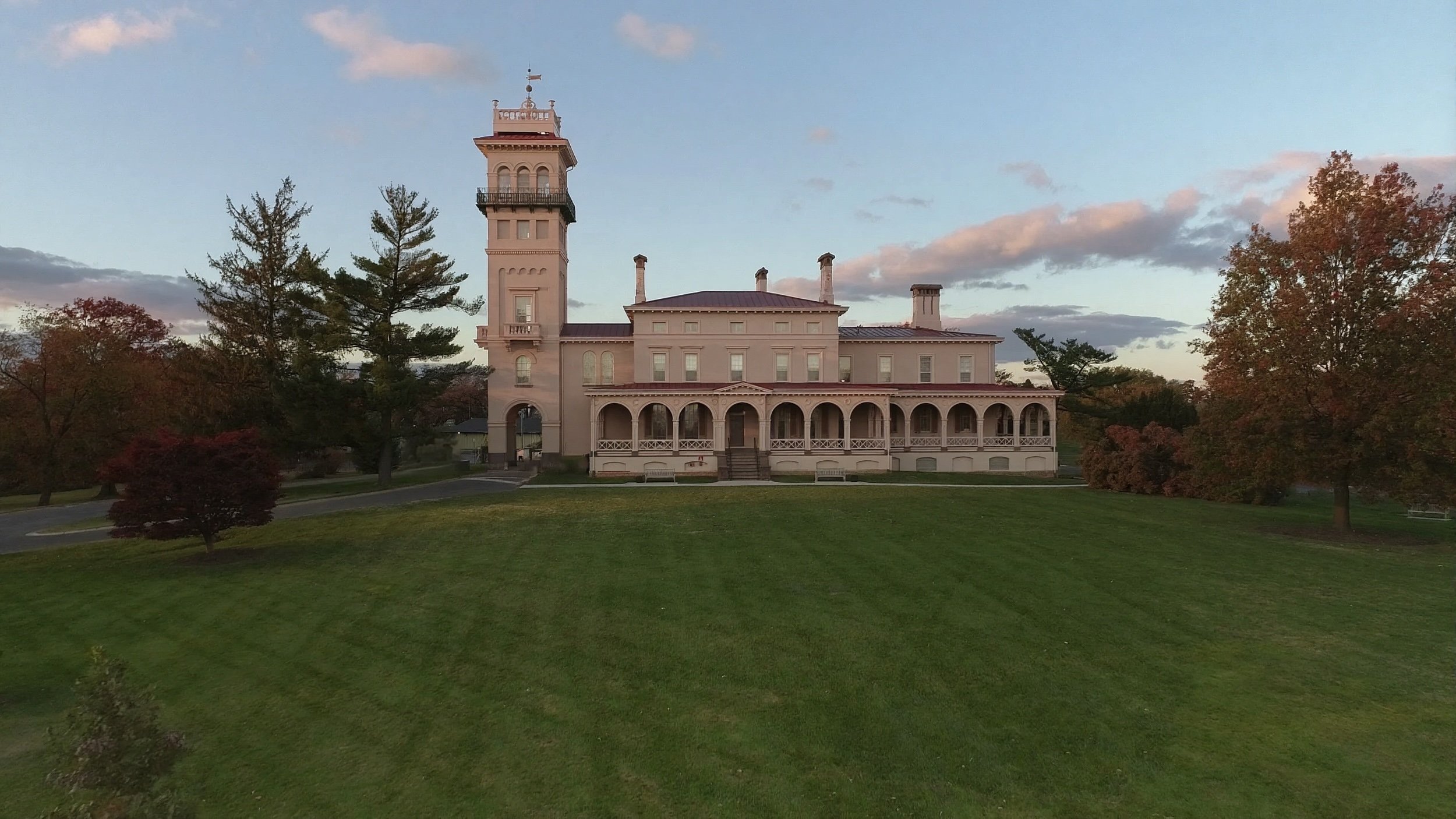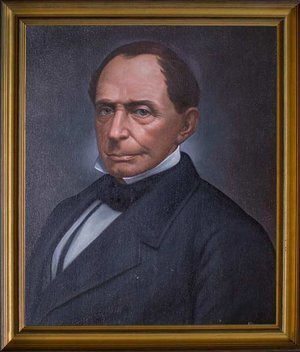
Friends of Clifton Mansion
Clifton Mansion is listed in the National Register of Historic Places, 2019
Clifton Mansion was the summer home of Quaker merchant Johns Hopkins. In founding the Johns Hopkins University, Hospital, and Medical School, Hopkins transformed higher education, medicine, and the City of Baltimore. He became the first important American philanthropist. It was in this Italianate villa that he hosted local, national, and international dignitaries who were at the forefront of 19th century progress and prosperity.
Friends of Clifton Mansion is a nonprofit dedicated to the restoration and preservation of Clifton Mansion, honoring the legacy of Johns Hopkins and Clifton’s significant contribution to Baltimore and American history. Our mission is to restore Clifton Mansion back to its original elegance, making it a building that all Baltimoreans can take great pride in with a special emphasis on philanthropy and honoring the history of this remarkable piece of American architecture.
Friends of Clifton Mansion’s vision is to establish a museum of philanthropy commemorating Maryland philanthropists and their roles in the development of modern American philanthropy. Friends of Clifton Mansion promotes the welfare of the people of Baltimore, the ideal of American philanthropy, progress, and the worth and dignity of Clifton Mansion and its history. This purpose is given tangible visibility by restoring and preserving the historic summer residence of Johns Hopkins, Baltimore’s preeminent philanthropist and visionary.
Unraveling a Maryland Mystery: Johns Hopkins, Clifton Mansion and the 1850 Census
This short-form documentary reveals newly discovered facts and thoughtful insights surrounding Johns Hopkins and how he and the Quakers viewed and addressed issues of slavery. More specifically, it explains that the presence of the “four men" likely reflected an emancipationist strategy rather than slaveholding by Hopkins himself and discusses the important roles played by Hopkins’ sister, Eliza Hopkins Crenshaw, and her husband, Nathaniel C. Crenshaw, both devout Quakers and antislavery advocates
The careful and extensive research was conducted by a four-person team of Dr. Sydney Van Morgan, Ed Papenfuse, Stan Becker and my oldest brother Samuel Hopkins.
An Examination of a Maryland Mystery
In 2020, a scholar discovered an 1850 census document listing four enslaved men at the summer estate of Johns Hopkins—Maryland’s celebrated philanthropist and namesake of the renowned university and hospital. The record, which connects these individuals to Johns Hopkins, a devout Quaker with reputed abolitionist leanings, raises intriguing questions. Who exactly were these four men? Were they owned by Johns Hopkins, or were they employed by him or other residents of the estate? Could there be alternative explanations? Originally published on October 13, 2022, A Maryland Mystery: Johns Hopkins, the 1850 Census, and Slavery, closely examines the unexpected document in the context of the seventh United States census, while also exploring Johns Hopkins’ distinctive career as a merchant, banker, investor, and practicing Quaker. It offers and critically reviews four possible explanations for the presence of these men at Hopkins’ summer residence near Baltimore City during the summer of 1850.









